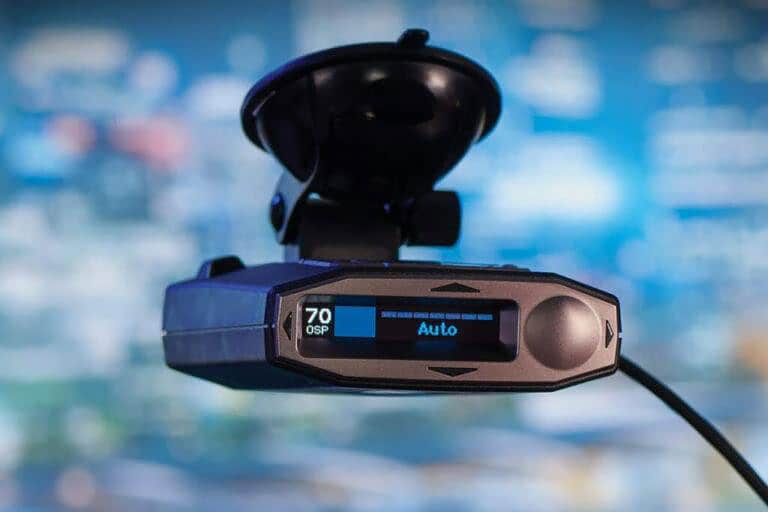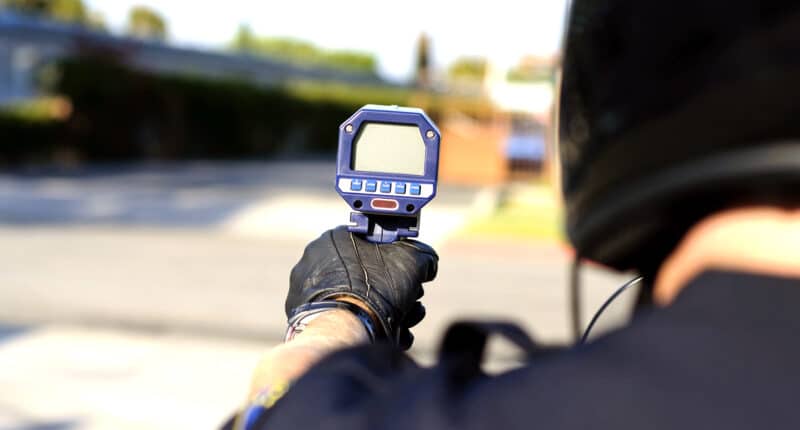Radar detectors are legal in most U.S. states. These devices help drivers monitor their speed and reduce the likelihood of being pulled over for speeding.
However radar detectors are not legal in all states because they can promote reckless driving just as much as they can deter it. It is believed that most drivers are more likely to comply with speed limits without the presence of radar detectors.
Though radar detectors are legal in Louisiana, here’s what you need to know about the laws surrounding their legality before you install the device in your vehicle.
Relevant Restrictions
Louisiana’s radar detector laws are laid out in the state’s Revised Statutes, under RS 32:43 titled “Automated speed enforcement devices; prohibition” under Title 32 of the Motor Vehicles and Traffic Regulation act.
As per this, here is the legality of using radar detectors and mounting them.
Windshield Mounting

For a better detection range, it makes sense to mount your radar detector as high as possible on the car. This is usually the front windshield.
While some states have banned windshield mounting of radar detectors, treating them as a potential distraction to the driver and an obstruction to the driver’s view, Louisiana is not one of them.
In Louisiana, radar detectors can be mounted on windshields. It is perfectly legal to do so.
Privately Owned vs Commercially Owned Vehicles
Radar detectors are legal in both privately owned and commercially owned vehicles.
The latter needs to be under 10,000 lbs — radar detectors are illegal in all states in commercial vehicles that weigh over 10,000 lbs, as per the 1994 Federal Highway Administration laws.

Radar detectors shouldn’t be installed in such heavy commercial vehicles, whether inside or outside. Even if you don’t intend to use the device and keep it switched off, just its presence inside is illegal.
The idea behind this measure is to restrict speeding in large vehicles, as speeding is significantly more dangerous to the vehicle and surrounding vehicles in big trucks.
Driving in a Military Area
In all 50 states, federal law prohibits the use of radar detectors on and around military bases. Even if you’re simply driving past a base, your radar needs to be switched off and dismounted from your car.
Military operations rely heavily on radar detectors and signals, and an external detector can interfere with the machines being used at the base in addition to altering and destroying signals.
Radar detectors are illegal in all private and commercial vehicles in Virginia. They are also illegal in the District of Columbia, though there are some exceptions in place here.
Radar Detector Common Myths
Here are some myths surrounding radar detectors:
- Radar detectors don’t function in bad weather: Radar detectors are only slightly affected by poor weather and can function quite well in such conditions. The impact of adverse weather on these devices is not enough to make the readings inaccurate.
- Radar detectors are for bad drivers: This is a generalization that doesn’t hold. Though some rash drivers do use radar detectors, an equal number (if not higher) of responsible drivers also use radar detectors, especially those who drive longer distances and hours than average.
- Radar detectors enable speeding: Radar detectors only detect the speed of the vehicle and tell if you’re going over the speed limit. Ultimately, if a driver is choosing to speed, that’s a result of their decision-making.
- Additionally, LiDAR technology, which uses light waves to detect speed, is more commonly used by authorities to easily catch speeding vehicles, increasing the chances of getting caught.
State of Louisiana Info

The state of Louisiana lies in the southernmost location of the United States.
It is the 31st largest state in the country with a 25th rank with regard to its population.
It is the only state in the country that has no counties. Instead, it is made up of political subdivisions and parishes.
Population: 4,616,106
Capital: Baton Rouge
Registered vehicles: 4,086,128
Total lane miles: 134,115
Number of highways: 19

